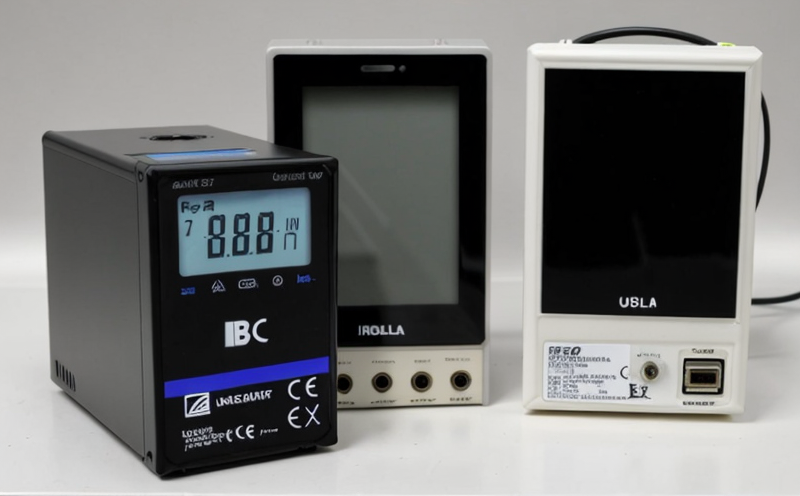ASTM F3148 Consumer Electronics Rechargeable Lithium Battery Testing
The ASTM F3148 standard provides a comprehensive framework to evaluate the safety and performance of rechargeable lithium batteries used in consumer electronics. This service ensures that these batteries meet stringent requirements for durability, reliability, and safety under various operational conditions.
Our lab adheres strictly to ASTM F3148 guidelines, ensuring precise testing protocols are followed. We assess parameters such as internal resistance, impedance, capacity retention, and temperature stability. This testing is critical in the development of consumer electronics where battery performance directly impacts user experience.
The ASTM F3148 standard covers a wide range of tests including charge-discharge cycles, thermal abuse, electrical stimulation, and mechanical stress. These tests are designed to simulate real-world conditions that batteries encounter during use. By subjecting batteries to these rigorous evaluations, we can identify potential weaknesses or hazards early in the development process.
Consumer electronics manufacturers rely on our lab for ASTM F3148 testing because it provides them with crucial insights into their product's safety and performance. Our experienced technicians understand the nuances of this standard and ensure that every test is conducted accurately and efficiently. This service not only supports compliance but also enhances product quality, ensuring reliability and longevity.
We use advanced equipment such as battery analyzers, impedance measurement systems, and thermal chambers to perform these tests. These instruments provide detailed data which helps in making informed decisions about design improvements and material selection. The results from our testing are reported comprehensively, highlighting any issues found during the evaluation process.
Understanding the implications of ASTM F3148 for different types of consumer electronics is essential for effective utilization of this standard. For instance, smartphones require rapid charge cycles with minimal heat generation to enhance user convenience and prevent overheating risks. On the other hand, wearable devices like smartwatches need long-lasting batteries that can withstand multiple charging-discharging cycles.
By adhering strictly to ASTM F3148 standards, manufacturers ensure their products meet global safety requirements set by regulatory bodies worldwide. This compliance helps protect consumers from potential hazards associated with faulty or poorly designed batteries. Additionally, it fosters trust between brands and customers, reinforcing brand reputation and market positioning.
The environmental impact of lithium battery production and disposal cannot be ignored. Our lab contributes to sustainability efforts through efficient testing practices that minimize waste generation while ensuring product quality. By identifying defects early in the manufacturing process, we reduce the number of defective units reaching consumers, thereby lowering overall resource consumption.
Applied Standards
- ASTM F3148: Standard Practice for Testing Rechargeable Lithium Batteries in Consumer Electronics
- IEC 62133: Safety of Rechargeable Consumer Cells and Batteries Containing Lithium
- UN34.3: Transport of Dangerous Goods
International Acceptance and Recognition
The ASTM F3148 standard is widely recognized globally for its robust approach to evaluating rechargeable lithium batteries in consumer electronics. Its international acceptance ensures that the results obtained from our testing are valid across different regions, facilitating seamless trade between countries.
Many leading brands and regulatory agencies around the world rely on ASTM F3148 compliance as a benchmark for ensuring product safety and performance. This standard's broad recognition underscores its importance in maintaining high standards within the industry.
Our lab’s adherence to ASTM F3148 not only meets domestic requirements but also prepares products for international markets, reducing the need for additional testing elsewhere. By providing consistent results across borders, we contribute to the global harmonization of safety and performance expectations for lithium batteries used in consumer electronics.





